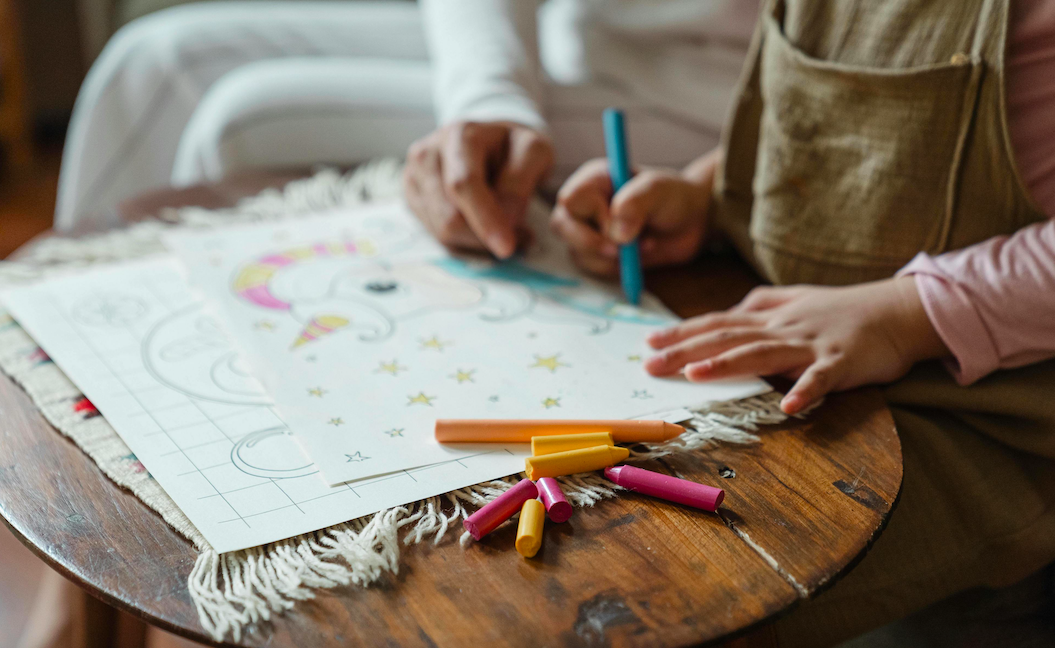In the hope of raising decent human beings…
I’ve recently been pondering what we as parents should focus on when raising young children (age 0-7). To gain insights, I delved into the wisdom of our Muslim ancestors and the findings of modern experts.
Experts’ View on Raising Little Ones
We, human beings, have something called a prefrontal cortex. It is located in the front part of the frontal lobe. This brain region is responsible for executive functions (ability to differentiate among conflicting thoughts, determining good and bad, better and best, same and different, future consequences of current activities, working towards a defined goal, prediction of outcomes, and social “control” (meaning ability to suppress urges that might lead to socially unacceptable outcomes), planning, decision making, working memory, personality expression, moderating social behavior and controlling certain aspects of speech and language.
This part of the brain is not fully developed until around age 25. So, buckle up, parents. A long journey that requires patience and perseverance is on our way.
Do you know what helps the prefrontal cortex develop properly?
- A Supportive Environment and Positive Social Interactions
Today’s experts say that we create a supportive environment through responsive parenting (taking an interest in your child’s physical and emotional needs), learning opportunities (providing educational material and interactive activities and creating areas that encourage the child’s curiosity and exploration), and social engagement (involving kids in playdates, community events and etc.).
Also, I’d like to add a statement I will never ever forget from our pediatrician Dr. Necla Ipar.
“The best thing you can do for your child is have a wonderful relationship with your husband.”
A statement worth reflecting on!
2. Proper Nutrition
Children’s diet should be balanced (rich in omega-3 fatty acids, vitamins, and minerals). They should be hydrated and their sugar intake should be limited.
3. Sleep
Creating a sleep-friendly environment (limiting screen time before bed, being outside during daylight, encouraging relaxing activities like reading ) and a consistent sleep schedule helps ensure children get enough rest. 1
Islamic View on Raising Little Ones
According to Islam, the upbringing of a child is divided into three stages. From birth to age 21.
This is based on the following hadith of the Prophet (s.a.w.): “The child is the master for seven years; and a slave for seven years and a vizier for seven years; so if he grows into a good character within 21 years, well and good; otherwise leave him alone because you have discharged your responsibility before Allah.”
The same hadith has been explained by Imam Ja`far as-Sadiq (a.s.): “Let your child play up to seven years; and keep him with you (for education and training) for another seven years; then if he succeeds (well and good); otherwise, there is no good in him.”
So, kids aged 0-7, according to Islam, should be let play a lot.
Now that the experts say that kids should be provided with a rich educational environment, makes me wonder what kind of environment helps children learn best.
Experts say that kids learn best through hands-on experiences (playing with toys, building with blocks, creating art, and cooking) and active explorations. 2
It is PLAY that both Islam and today’s experts agree on to be the most important thing for our kids.
So, kids learn best through play, doing things themselves (in short bursts of time as their attention span is short), having regular routines (such as bedtime and morning routine, and set routine of mealtimes) that helps develop self-discipline and a sense of responsibility), reading stories to your kids (important to engage with them, ask them questions about stories…), and building positive relationships with adults that leads to a development of a sense of trust and security reinforcing empathy, kindness, and self- esteem.
ABCs? 1,2,3s? Taking the formal education of little ones too seriously will do more damage than good in the long-run.
LET YOUR CHILD PLAY.
SHOW THEM LOVE.
TAKE AN INTEREST IN THEIR INTEREST.
BE KIND AND FIRM.
THINK REWARDS RATHER THAN PUNISHMENT.
IF YOU SLIP, SAY SORRY.
DO AS YOU PREACH.
ALLOW LITTLE TIME TO MISS THEM.
RECONNECT WITH THEM.
BUILD MEMORIES AND SELF-ESTEEM.
Writing this article has once again proved to me that Islam, indeed, has had answers for all times.
This article offers practical tips on what to focus on when raising kids (ages 3-7).
Thank you for stopping by!
With love,
Sejla
References:
- https://www.primarybeginnings.com/blog/prefrontal-cortex-development-activities-for-kids#:~:text=Why%20Environment%20and%20Social%20Interaction,help%20children%20develop%20essential%20skills.
- https://articles.unishanoi.org/how-do-young-children-learn-and-grow/#:~:text=Learning%20through%20hands%2Don%20experiences,%2C%20creating%20art%2C%20and%20cooking.

